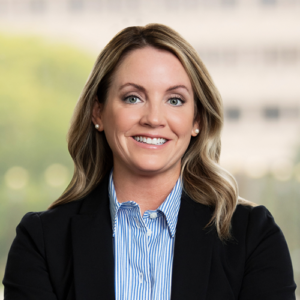The Department of Health and Human Services Office of Inspector General (“OIG”) recently issued Advisory Opinion 16-12, determining that a proposed arrangement for a laboratory to provide test tube and specimen collection container labeling to dialysis facilities had the potential to violate the Anti-Kickback Statute (“AKS”).
Background
The requesting laboratory (“Requestor”) provides certain laboratory testing services to dialysis patients pursuant to various service contracts with dialysis facilities. The Requestor has proposed to offer some of the dialysis facilities test tube and specimen collection container labeling at no cost to the dialysis facilities. The Requestor personnel would perform the services in the Requestor’s own facilities. The Requestor would determine which dialysis facilities would be offered the labeling services based on whether offering those services would be necessary to obtain or retain business from that particular dialysis facility.
The facts outlined in this Advisory Opinion are identical to those in Advisory Opinion 08-06 (“AO 08-06”). However, at the time AO 08-06 was issued, Medicare had a composite rate reimbursement system for such services. In AO 08-06, the requestor provided composite rate tests, which were included in Medicare’s composite rate for the dialysis facilities; thus, the tests were not separately reimbursable. In AO 08-06, the requestor also provided noncomposite rate tests, or separately billable laboratory tests that were not covered by the Medicare composite rate reimbursement.
In 2010, the Centers for Medicare & Medicaid Services (“CMS”) published a prospective payment system (“PPS”) to reimburse facilities that furnish services to patients with end-stage renal disease (“ESRD”). This ESRD PPS replaced the previous payment system for separately reimbursable ESRD services with a new bundled payment system in which all ESRD-related laboratory tests are reimbursed as part of the ESRD PPS bundle. Along with this new program, CMS allowed independent laboratories, hospital-based laboratories and ESRD facilities to continue to receive separate payments for non-ESRD related tests ordered in those facilities. CMS does not make separate payments under the ESRD PPS for administrative tasks associated with the tests, including labeling.
The Requestor here asked OIG to determine whether these facts would constitute grounds for imposing sanctions under the new ESRD PPS.
OIG Analysis
The AKS makes it a criminal offense to knowingly and willfully offer or receive remuneration in an effort to induce or reward referrals of items or services reimbursable by federal health care programs. OIG stated that the AKS safe harbor for personal services and management contracts is potentially applicable to the arrangement here. However, the arrangement does not fit within the safe harbor because the dialysis facilities would not pay the Requestor for labeling services even though those labeling services would have value to the dialysis facilities. Although the arrangement does not fit within a safe harbor, OIG could still find that it has a minimal risk of fraud and abuse and therefore does not violate the AKS.
OIG remains suspicious of free or below-market goods to referral sources. OIG referenced its 1994 Special Fraud Alert that stated that when a laboratory offers or gives a service to a referral source for free, there is an inference that the service is intended to induce the referral of business.
OIG consulted with CMS for this Advisory Opinion analysis and determined that although the reimbursement for these services has changed, OIG still believes that this arrangement poses more than a minimal risk of fraud and abuse. In this case, the Requestor’s provision of labeling services at no cost would provide a tangible benefit to the dialysis facilities. Medicare makes no separate payment for the labeling services; therefore, the Requestor’s service would substitute for the services that the dialysis facilities would already have to provide. Thus, there is an inference that the free labeling services would be intended to influence the dialysis facilities’ selection of the Requestor, and the Requestor would be able to generate substantial revenue by capturing referral streams from the dialysis facilities. This is consistent with the fact that the Requestor would choose dialysis facilities based on retaining or obtaining their business. Due to this analysis, OIG concluded that the arrangement could potentially generate prohibited remuneration under the AKS.
Practical Takeaways
Laboratories providing services to dialysis facilities should take care to structure arrangements to ensure that there is low risk of improper inference that the services are intended to generate referrals. Beware of arrangements with the following elements:
- Provision of free or below-market goods or services to a potential referral source;
- Laboratory discounts to dialysis facilities for composite rate tests in exchange for referrals of the facility’s non-composite rate tests (“swapping arrangements”);
- Attempts to capture referral streams specifically from dialysis facilities, as dialysis patients usually need lifelong testing services (therefore creating more revenue); and
- Provision of services to a potential referral source in order to obtain or retain business.
If you have any questions or would like additional information about this topic, please contact:
- Gregg M. Wallander at (317) 977-1431 or gwally@wp.hallrender.com;
- Erin M. Drummy at (317) 977-1470 or edrummy@wp.hallrender.com;
- Alyssa C. James at (317) 429-3640 or ajames@wp.hallrender.com;
- Allison P. Emhardt at (317) 429-3649 or aemhardt@wp.hallrender.com; or
- Your regular Hall Render attorney.



